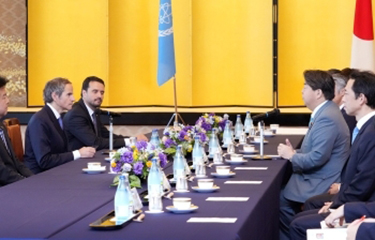Japan has received the green light to release treated cooling water from the controversial Fukushima Daiichi nuclear power plant into the Pacific Ocean, prompting some of Japan’s neighbors to increase seafood testing requirements or expand the number of Japanese prefectures covered by import bans over fears of radiation contamination.
A positive review from the United Nations International Atomic Energy Agency, which the plant received on 5 July, was the last step in getting full approval for the release, the exact timing of which remains unknown.
According to the Export and International Affairs Bureau of Japan’s Ministry of Agriculture, Forestry, and Fisheries, most of the 55 countries that introduced measures on Japanese seafood after the Fukushima Daiichi Nuclear Power Station accident in 2011 have eliminated them. Prefectures banned by other countries differ depending on the importing country.
South Korea, which is trying to mend fraught relations with Japan under new president Yoon Suk Yeol, will maintain its current ban on marine product imports from eight Japanese prefectures: Aomori, Iwate, Miyagi, Fukushima, Ibaraki, Tochigi, Gunma, and Chiba. Imports from other prefectures require a test certificate for radioactive materials but may still be subject to testing during customs clearance. Even a tiny bit of radiation detected in imports will result in a swift ban of the products, local authorities have said.
“The government once again reiterates that the people need not worry about the safety of seafood on our table,” Park Ku-yeon, the first deputy chief of the South Korean Office for Government Policy Coordination, told the Yonhap News Angecy.
Taiwan retains a ban on a few Japanese products, such as mushrooms, but for seafood, it simply requires ...
Photo courtesy of Ministry of Foreign Affairs of Japan








